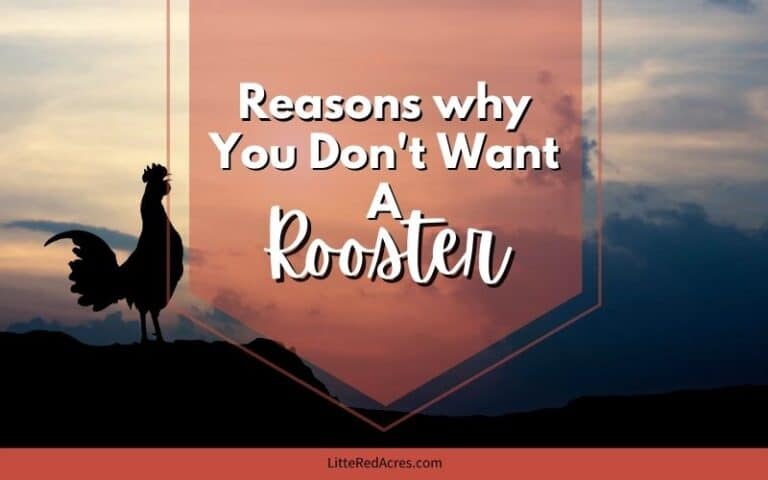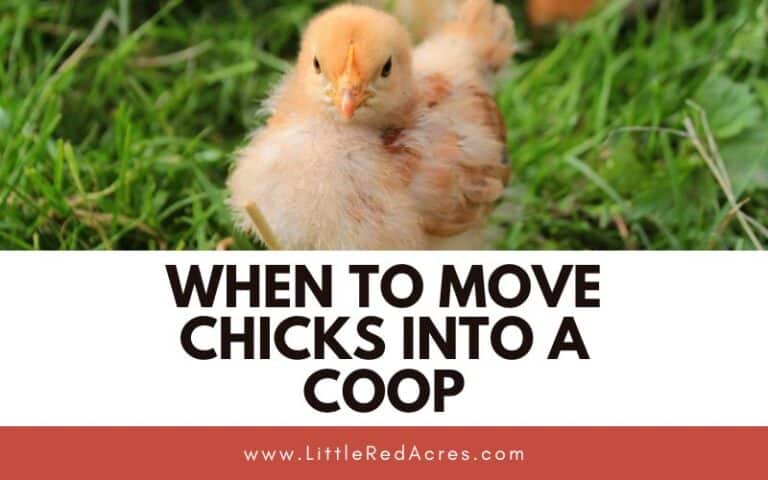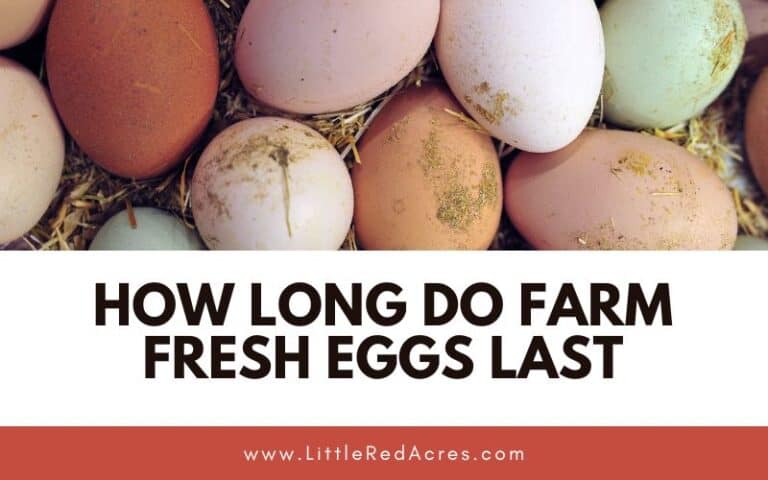How to Help An Egg Bound Chicken
Inside: Learn how to help an egg bound chicken in this informative post. Discover common symptoms, causes, and effective remedies for this.
Egg-binding is a common condition that affects backyard chicken owners. It occurs when a hen is unable to lay an egg, which can be both uncomfortable and dangerous for the bird. By understanding the condition, you can learn how to help an egg-bound chicken the next time it happens to you.
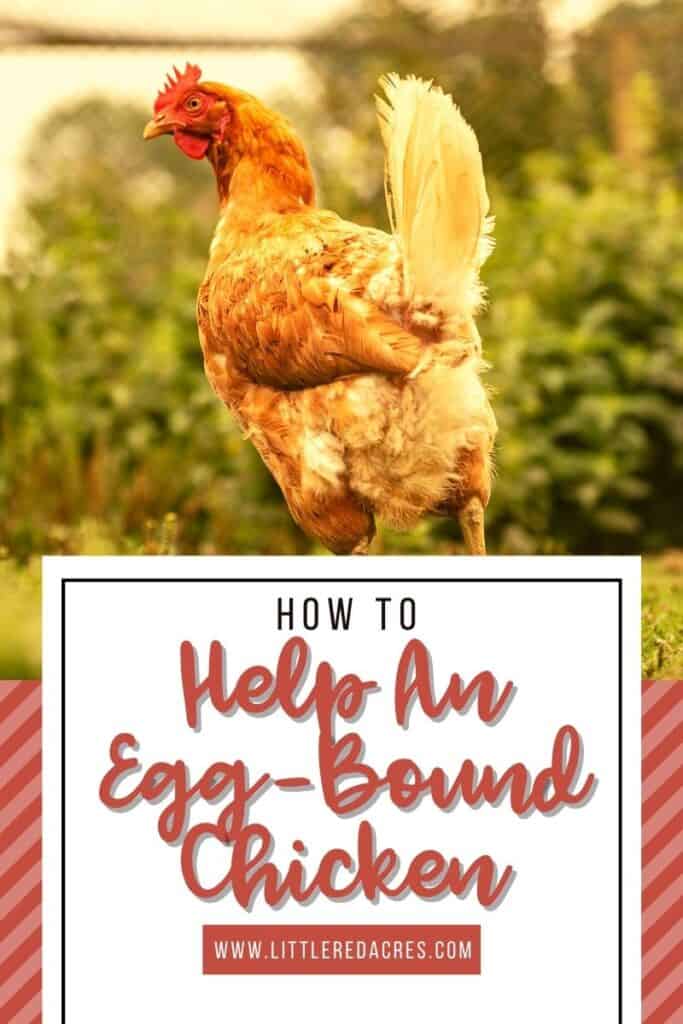
This post may contain affiliate links, see my disclosure policy for more information.
How to Help An Egg-Bound Chicken
Egg binding can occur in even the healthiest of hens, but there are a few factors that make it more likely. Some possible causes of egg binding include:
- Calcium Deficiency
- Egg Retention Due to Insufficient Nesting Areas
- Obesity
- Immature Layer (a hen that begins laying before her body is ready – this is one of the dangers of rushing laying with artificial lights)
- Dehydration
Get updates & freebies delivered to your inbox!
Egg-binding is a condition where a hen is unable to lay an egg due to an obstruction in her reproductive tract. This is a serious condition that can be life-threatening if not addressed promptly. If you suspect that one of your chickens is egg-bound, it's important to take action right away.
Here are some steps you can take to help an egg-bound chicken:
Provide a Comfortable Environment
Egg-bound chickens may feel uncomfortable and stressed. Provide a warm, quiet, and comfortable environment for your chicken to help her relax. Make sure she has access to food and water, and keep her away from other chickens to prevent stress and bullying.
A Warm Bath
A warm bath can help relax the muscles in the hen's reproductive tract, making it easier for her to lay the egg. Fill a shallow container with warm water (around 105-107°F) and let your chicken soak in it for 15-20 minutes.
Make sure the water is deep enough to cover the hen's lower abdomen.
You'll be surprised just how relaxed your hen will quickly become in a warm bath.
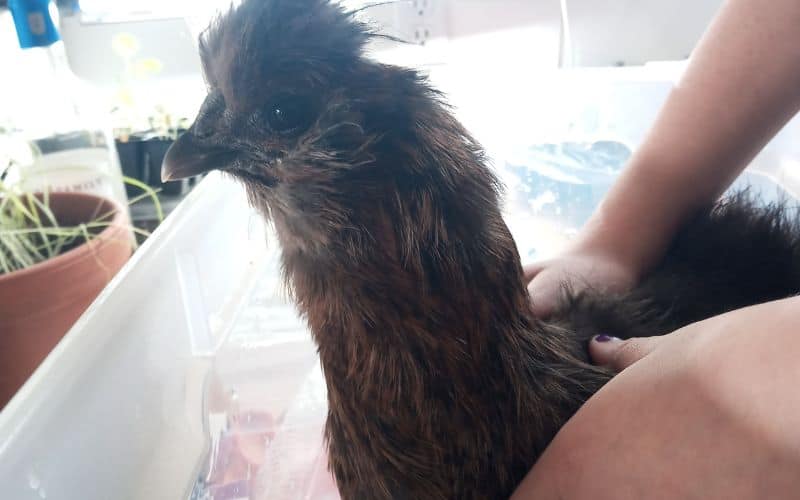
Massage the Abdomen
After the bath, gently massage your hen's lower abdomen to help stimulate the muscles that push the egg out. Use a gentle circular motion, and be careful not to apply too much pressure. You do NOT want to break the egg.
Give her Some Calcium
Egg-bound hens may benefit from a boost of calcium, which can help strengthen the muscles in the reproductive tract. You can give your hen some crushed eggshells, oyster shells, or calcium supplements.
Make sure she has access to plenty of water, as calcium supplements can cause dehydration.
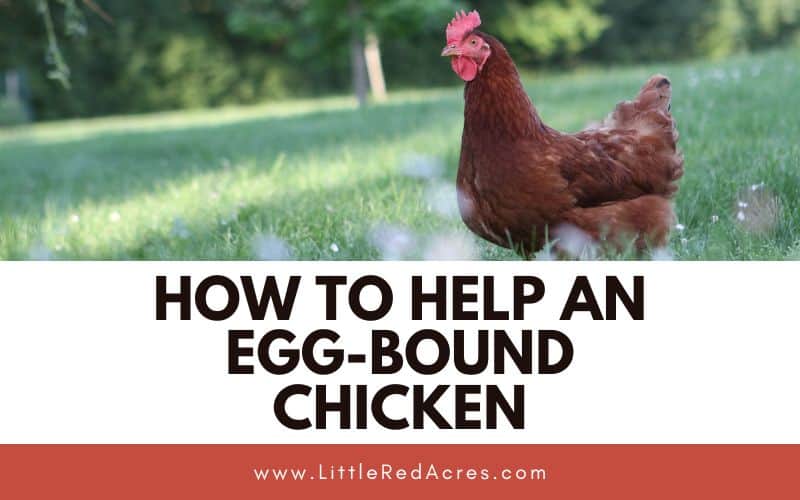
Seek Veterinary Care
If your hen is severely egg-bound, or if she has been straining for more than a day, it's time to seek veterinary care. A veterinarian can help remove the egg and provide supportive care for your chicken.
Egg-binding is a serious condition that requires prompt attention. By taking the steps above, you can help your egg-bound chicken and prevent the condition from becoming life-threatening.
Remember to provide a comfortable environment, give her a warm bath, massage her abdomen, and provide calcium supplements. If the situation worsens, seek veterinary care immediately.
Frequently Asked Questions About Egg Bound Chickens
How long can an egg bound chicken live? Although rare, if a hen is truly egg bound and the egg is not removed the hen will most likely die within 48 hours or less. Remember, egg binding should not be a common occurrence in hens that are fed and handled properly.
What chicken breeds are prone to egg bound? Breeds that are known for prolific egg-laying, like Leghorns or commercial hybrid layers, may face more stress on their reproductive systems, potentially increasing the risk of issues such as egg binding.

Want More?
Deworm Chickens Naturally: Effective Methods for Parasite Control


